Japan cheap hotel chain guide, for you who don’t ask for APA.
Jing
After the incident of APA hotel chain in Japan broke out, I believe that no Chinese will be willing to pay the money in his pocket to that guy named Yuangu Waizhixiong (this gentleman also publicly claimed through the Nihon Keizai Shimbun the day before yesterday that "he didn’t consider withdrawing related books"). In fact, in Japan, there are many chain-like low-cost hotel brands that have been deeply cultivated for many years. Many hotels with good location, good breakfast, cleanliness, comfort and no noise can stay at any time, and they still visit all over Japan without asking for APA.
Dong Ji lei
At present, this low-cost business brand under the Tokyu Hotel Group has 21 chain stores in Japan. Although the number is not at most, it covers tourist-intensive areas such as Tokyo, Osaka, Kumamoto, Okinawa and Hokkaido. Most hotels have great geographical locations, and some can be reached from the direct subway channel (such as Naha East Express REI). Dong Ji REI’s philosophy is "to live more like yourself and enjoy a moment of self-comfort in the hotel", so most of them adopt a natural environment without excessive decoration, the rooms are simple and bright, and all the facilities are very complete.
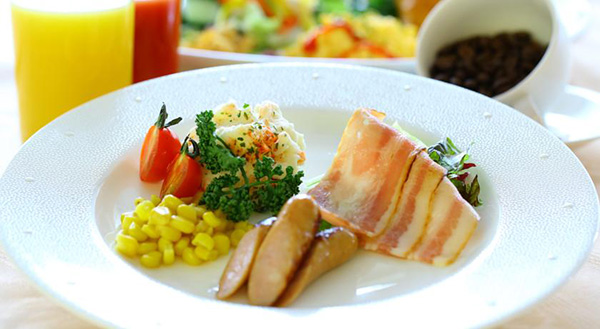
The breakfast quality of Dong Ji REI is good.
Among business hotels, the price of REI is quite reasonable. If you book in official website early, you can stay in a standard room for about four or five hundred yuan. If you join the club, you can get a 10% discount, and get discounts such as late check-out and dining points. Although the buffet breakfast is charged, it is still worthwhile. It provides more than 20 kinds of hot and cold food, which is quite rich in Japan’s low-cost hotels.
Dongheng INN
The largest brand in Japan’s cheap hotel chain, with 258 stores and 51,120 rooms, covers almost all tourist attractions. Interestingly, almost all rooms use the same equipment-the same lighting, the same tables and chairs, the same TV, etc., which is quite standardized. The advantages of doing this are obvious. Guests can get used to the facilities of each hotel as quickly as possible, but the disadvantages are also obvious at a glance-just as Japan sometimes gives travelers the impression that it is boring and dull.
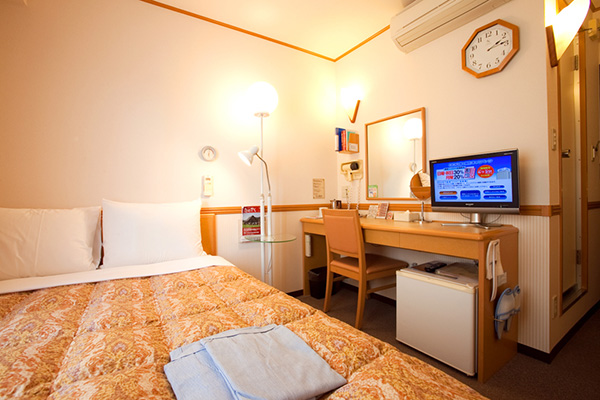
Almost every hotel’s Dongheng INN rooms have adopted the same facilities.
In order to maximize revenue, many Dongheng INN hotels have abandoned lobbies, gyms, shops, etc., but the low accommodation prices still make it full of business. Also, the price per capita in 200 yuan is almost the bottom price on the premise of ensuring safety and cleanliness.
Like Dongji REI, Dongheng INN also has its own points system. In addition to being able to stay at preferential prices and accumulate points, it can also get a free single room voucher for every 10 nights.
Super Hotel
The Super Hotel, which advertises safety, cleanliness and comfort, can be called the Jinjiang Star of Japan. Since its establishment in 1989, it has opened 119 stores all over Japan, even in the secluded Shikoku region.
Super Hotel are mostly located around subway stations or business districts with convenient transportation, and the prices are quite affordable. People can stay for one night with more than 200 yuan per person, including breakfast. Some hotels even have hot springs for guests to use for free. The password lock system is adopted for room check-in. Just close the door when checking out, which saves a lot of queuing time.
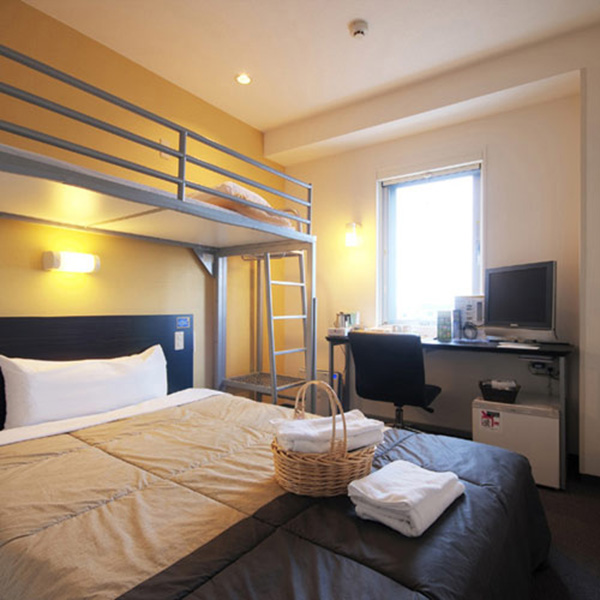
Super Hotel’s unique high and low bed room type
However, in my opinion, the biggest selling point of Super Hotel is its unique Super Room high and low bed room type, with a double bed on the lower bunk and a single bed on the upper bunk, which is suitable for odd-numbered friends or couples traveling with children. However, this room type is very popular, and it usually needs to be booked several months in advance.
Dormy Inn
As it belongs to Hotespa Hotel Group in Japan, which is famous for its hot springs, almost all 55 Dormy Inn hotels have their own natural hot springs or large baths, which is also the most attractive feature of this cheap hotel brand.
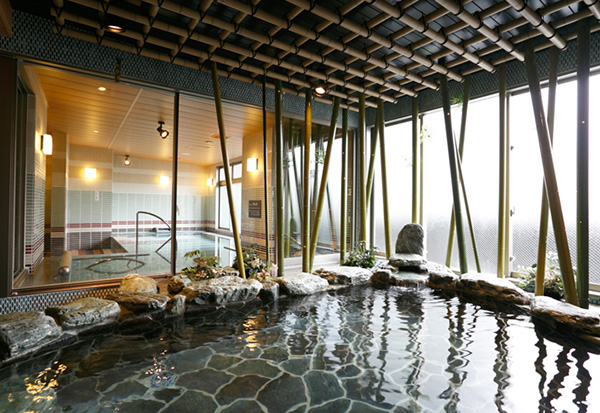
Almost every hotel can soak in hot springs.
Perhaps because of the hot spring culture, Dormy Inn is very popular with Japanese locals, so it is best to book it a few months in advance. Compared with Super and Dongheng INN, the price of this brand is slightly higher, about 700 to 800 yuan in normal season, including free hot spring bathing and Lamian Noodles supper.
Breakfast is usually not included in the room rate, but it’s worth it. Because every Dormy Inn uses local specialties to make different breakfasts, such as Izumo buckwheat noodles in Songjiang and sweet shrimp paella with roe in Otaru, people get up and throw themselves into the hot local life.
Villa Fontaine
This is a chain hotel brand based in Tokyo. Of the 15 stores it currently has, only Osaka and Kobe each have one seat, and the remaining 13 stores are located in different blocks of Tokyo.
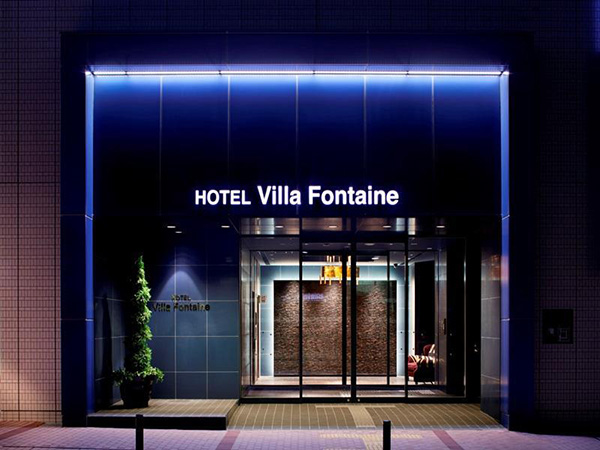
The facade of Villa Fontaine Hotel is very cosmopolitan.
Don’t be intimidated by the word Villa. I think this is a tall hotel brand with a very hot price. Villa means that compared with the cramped room area of most cheap hotels in Japan, its home has relatively spacious room area and bed size. This is especially important for families traveling with young children. It is important to know that most Japanese budget hotels do not have an extra bed policy for big bed rooms, so whether the bed width is 140 or 160 is very important. In addition, most hotels have coin-operated washing machines and dryers, which is also a plus for those tourists who don’t want to waste their time on washing and rubbing.
The price of the superior big bed room in the hotel is around 600 yuan in normal season, including breakfast. But don’t expect too much, because breakfast only provides very simple toast and coffee, no matter how good you eat, just eat.
Route Inn
A chain brand with a scale comparable to that of Dongheng INN but a relatively weak presence, with more than 40,000 rooms distributed in small and medium-sized cities in Japan.
Free parking is a major feature of Route Inn, but it doesn’t mean much to China tourists-China driver’s license is not recognized in Japan. Another feature that you can use the Ponta points of Rosen convenience store to deduct accommodation fees is the same.
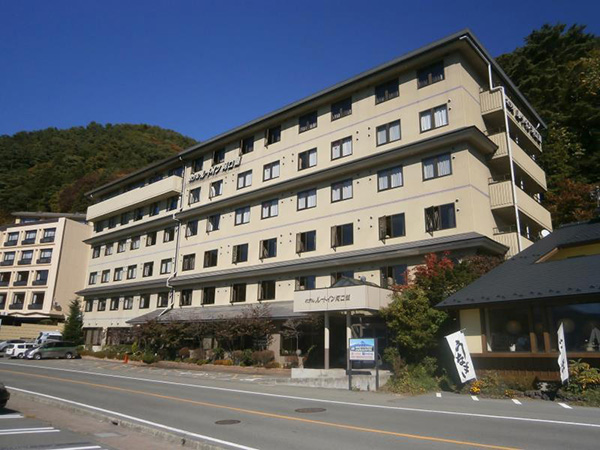
Route Inn, which is very popular in small and medium-sized cities in Japan.
However, this does not mean that the Route Inn Hotel is unattractive. Like all the hotel chains in Japan, its rooms are small and clean, well-equipped, and the price is reasonable. In some small cities, such as a double room with broadband and internet access, it costs only 400 yuan a night. Some hotels also offer buffet dinners with very high cost performance, such as Route Inn in Hekou Lake. You can enjoy crab feet and smoked salmon at the price in 100 yuan.